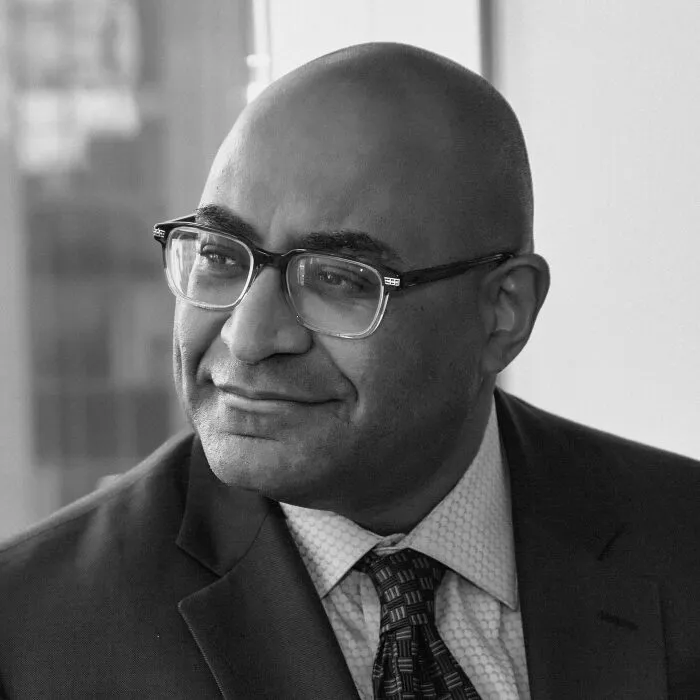After social justice protests surfaced racial inequality issues in 2020, the financial services firm Synchrony realized it needed to do more to level the playing field between businesses owned by Black, Latinx and women entrepreneurs.
Though the Stamford, Connecticut-based company had diversity networks internally and had focused on diversity before the Black Lives Matter protests, Synchrony began considering how it could invest in women and people of color beyond its typical Series A and Series B venture capital investments in companies, said Trish Mosconi, Synchrony’s chief strategy officer.
“We took a look at that about two years ago and said, I don't think we're doing enough,” Mosconi said. “I felt I could say that as a woman leader of the Synchrony Ventures team.”

Earlier this month, the company took one of several steps toward this goal. Synchrony pledged to invest $100 million with an investment fund run by Ariel Alternatives, which is tied via its co-founder, Mellody Hobson, to a Chicago-based investment firm, Ariel Investments, with a long history of Black ownership.
The fund, called Project Black, aims to invest in companies owned by Black and Latinx entrepreneurs and, in other instances, to transform some companies into Black and Latinx-owned companies. For the companies without owners of color, the fund wants to install executives of color and connect them with Fortune 500 companies seeking suppliers, the Feb. 1 Ariel Alternatives announcement said.
In addition to furthering Synchrony’s efforts to support entrepreneurs of color, Project Black will aid the financial services firm in hiring the fund’s portfolio companies for professional services over an undetermined period of time.
Project Black will invest in and create minority-owned businesses across financial and professional services, including in the healthcare, industrial, technology, marketing, manufacturing, transportation and logistics industries, said Charles Corpening, senior managing director and head of the investment team at Ariel Alternatives.
For Ariel Alternatives, Project Black is aimed at diversifying leadership at companies that could service Fortune 500 companies and provide employment opportunities for people of color in entry-level, managerial and senior roles. A spokesperson for Ariel Alternatives said the fund aims to acquire a majority stake in its portfolio companies and will maintain the companies' minority-owned status.
Truist Financial Corporation, a Charlotte, North Carolina-based commercial bank, was also a co-investor in the fund alongside Synchrony. Other major companies such as the retailer Lowe’s Companies, software firm Salesforce and big box store chain Walmart are limited partners, the Ariel Alternatives press release said.
As Ariel Alternatives assesses Project Black investment targets, Synchrony will give input, with an eye to the best candidates to provide services to Synchrony, Mosconi said.
Synchrony typically outsources a range of services such as technology, legal, consulting and marketing, Mosconi said. Though the company may use Project Black portfolio companies for some of these services, Mosconi could not confirm how long Project Black firms would remain suppliers for Synchrony, because the company spends money on these areas on a year-to-year or project basis.
Synchrony will distribute the $100 million it committed to Project Black over the course of about five years, Mosconi said. Project Black seeks to acquire six to 10 companies over about seven years, but the fund is expected to live 25 years, Corpening said, adding that he doesn’t think it’ll take the fund seven years to invest the money.
Through Project Black, Chicago-based Ariel seeks to acquire mid-sized companies generating between $100 million and $1 billion in annual revenue. As it places executives of color in leadership positions, the firm will take its time to find the leaders that fit with a given portfolio company’s culture and those capable of leading it, Corpening said.

“In all situations where you're having management augmentation…there are going to be fits and starts. But as long as we have alignment, I think we're going to be able to work through those fits and starts. But we would be surprised if every situation went 100% smoothly,” Corpening said. “We are extremely focused on ‘Do we have a good culture fit?’ and the situations where we think it's going to be too much turbulence, we'll pass.”
Project Black also will have some sway over their portfolio company’s hiring and promotion practices. Ultimately, the fund wants to acquire businesses that create workplaces that are in demand by employees of color. It will also encourage companies to promote and retain workers of color in managerial and senior roles, Corpening said.
The fund will seek to hold its portfolio companies longer than most other private equity firms typically do, he added. While private equity firms typically own portfolio companies for less than 10 years, the Ariel Alternatives spokesperson said in a follow-up email that Project Black may hold them for as many as 25 years. “This allows Ariel to scale businesses over time, and allows these businesses to remain owned by leaders of color,” the spokesperson explained.
Holding portfolio companies for a longer period will give Project Black businesses more time to connect with Fortune 500 companies seeking diverse vendors, Corpening said. It will also provide more leeway in shaping the culture within the portfolio companies for all employees, but especially workers of color, he said.
Being a long-term investor provides significant say at the board of directors level and fosters alignment with the management team such that a company can satisfy its customers, and create opportunities for all involved.
“We want to create opportunities at the lowest end to the board of directors for people of color. And that kind of change doesn't happen overnight or 24 months,” Corpening said.


















